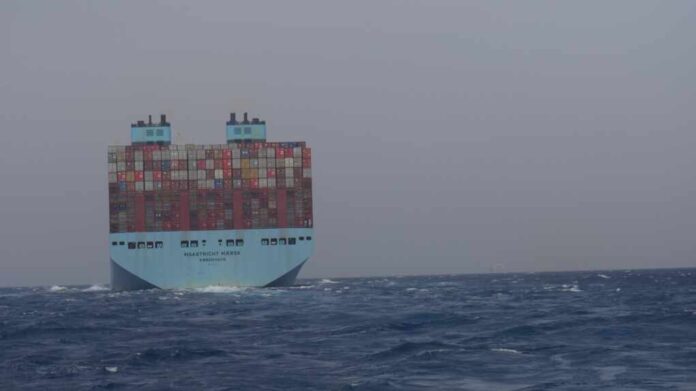
Black Sea shipping faces renewed deadly threats as explosive devices target civilian cargo vessels.
Story Snapshot
- Civilian cargo ship struck by explosive device near Ukraine, highlighting escalating maritime warfare risks
- Three years of Russia-Ukraine conflict have transformed Black Sea into militarized danger zone for commercial shipping
- Global supply chains disrupted with soaring costs hitting American consumers through inflation
- Failed diplomatic initiatives and collapsed grain deals leave civilian vessels vulnerable to attacks
Latest Attack Highlights Maritime War Zone
A civilian cargo ship operating in Black Sea waters near Ukraine was struck by an explosive device, marking another dangerous escalation in the maritime dimension of the Russia-Ukraine conflict. The incident underscores how three years of warfare have transformed one of the world’s critical shipping corridors into an active combat zone where civilian vessels face constant threat from mines, drones, and direct military action.
The attack demonstrates the complete breakdown of maritime security that has plagued the region since Russia’s February 2022 invasion. Commercial shipping companies now navigate waters where explosive devices drift freely and military assets from both sides operate with little regard for civilian safety protocols that once governed international waters.
Black Sea Cargo Ship Hit by Explosive Device off Ukraine—report https://t.co/x7vvSez451
— Tuck The Frumpers (@realTuckFrumper) August 31, 2025
Systematic Destruction of Global Commerce
Since the conflict began, the Black Sea region has witnessed unprecedented disruption to civilian shipping operations. Russian forces seized key Ukrainian ports including Mariupol and imposed blockades that halted grain and commodity exports critical to global food security. Western sanctions further complicated logistics while direct attacks on civilian infrastructure created a maritime environment hostile to commercial operations.
The collapse of the UN-brokered Black Sea Grain Initiative in July 2023 removed the last meaningful protection for civilian shipping. Russia’s withdrawal from this agreement eliminated safe passage guarantees, leaving commercial vessels to navigate increasingly militarized waters without international oversight. Ukraine’s subsequent establishment of alternative shipping lanes along NATO coasts provided only partial relief while volumes remain far below pre-war levels.
Watch a report:
Economic Warfare Against American Families
Maritime disruptions have triggered massive increases in shipping costs and insurance premiums that directly impact American consumers through higher prices on essential goods. The conflict has weaponized global supply chains, with grain and energy exports facing severe restrictions that fuel inflationary pressures domestically. Industry experts warn these costs will persist as long as the Black Sea remains militarized.
International shipping companies face impossible choices between risking crews and vessels in dangerous waters or absorbing massive costs from rerouting operations. This economic pressure ultimately transfers to American consumers who bear the burden of failed foreign policy through higher grocery bills and energy costs that strain family budgets already hammered by previous administration mismanagement.
Sources:
War in Ukraine: Impacts in Shipping
Shipping Safety: Ukraine War Impact Analysis
Russia’s Invasion of Ukraine: Consequences for Shipping Clients
Russia’s Strategic Naval Collapse 2022-2025 in Ukraine War Context
Global Conflict Tracker: Conflict in Ukraine

























